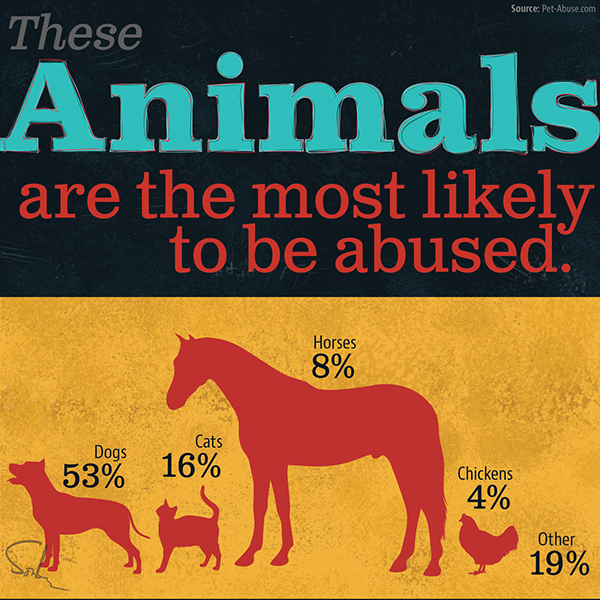Animal cruelty is a pervasive and distressing issue that has persisted throughout history, manifesting in various forms and couched within complex socio-economic contexts. The intersection of animal welfare and social justice is not merely a point of intersectionality; it is a crucial battleground for ethical considerations and human morality. As society grapples with numerous social issues, the plight of animals should not be relegated to the periphery. Instead, it demands focused attention. Understanding animal cruelty as a social justice issue reveals the ethical, environmental, and economic ramifications that affect both animals and humans alike.
At its core, animal cruelty encompasses a range of inhumane treatments that animals endure at the hands of humans. This includes neglect, abuse, exploitation, and even systemic violence against entire species. Whether it is the grueling conditions of factory farming, the barbaric practices of dog fighting, or the rampant poaching threatening wildlife, the manifestations of animal cruelty are both insidious and overt. Historically, societies that have marginalized certain groups often extend this marginalization to non-human animals, viewing them primarily as resources rather than sentient beings deserving of empathy and protection.
Taking a closer look at the socio-economic dimensions of animal cruelty can elucidate why it is not just an animal rights issue, but a profound social justice concern. Low-income communities often bear the brunt of animal exploitation. For instance, factory farms are frequently situated in economically disadvantaged areas, exposing residents to environmental toxins and health risks. The correlation between poverty and the prevalence of such industries leads to a vicious cycle, where both animals and vulnerable human populations suffer. Addressing animal cruelty, therefore, becomes intertwined with the pursuit of environmental justice and the need for equitable resource distribution.
Furthermore, the exploitation of animals often intersects with issues of race and ethnicity. Marginalized communities that engage in traditional practices involving animals face scrutiny and discrimination from dominant societal structures. In some cases, their cultural traditions are pathologized under the auspices of animal welfare, while the humane treatment of animals often overlooks the complex socio-cultural dynamics at play. This systematic disempowerment exacerbates social inequities, making it critical to advocate for an inclusive approach to addressing animal rights that respects cultural variations while promoting compassion.
One of the most troubling aspects of animal cruelty that warrants attention is its psychological impact on perpetrators. Research indicates a concerning linkage between animal abuse and human violence. Individuals who engage in cruelty towards animals often exhibit antisocial tendencies, raising alarm about broader societal implications. Understanding the motivations behind such acts, be it socio-economic deprivation, mental health issues, or a lack of exposure to empathy, underscores the necessity for early intervention. Therefore, addressing animal cruelty can help untangle a web of societal violence, thereby leading to a decrease in human victimization.
The environmental implications of animal cruelty further solidify its status as a social justice concern. The livestock industry, for instance, is one of the leading contributors to greenhouse gas emissions, deforestation, and biodiversity loss. The environmental degradation wrought by factory farming disproportionately affects marginalized communities. Contaminated water sources, polluted air, and diminished local wildlife threaten the health and well-being of those living nearby. By highlighting the environmental consequences of animal cruelty, the dialogue expands to include sustainability and ecological justice, reinforcing the interconnectedness of all life.
Incorporating an animal welfare lens into broader social justice movements encourages a more holistic understanding of social disparities. Activists increasingly advocate for an evaluative framework that considers both human welfare and animal protection as interrelated. Psychologists, social workers, and environmentalists are collaborating on initiatives that foster empathy towards both humans and animals. Educational programs focusing on compassion and responsible relationships with animals can cultivate a generation more attuned to the intricacies of ethical living.
The challenge lies in mobilizing public consciousness about animal cruelty as a systemic problem rather than isolated incidents of individual malice. Campaigns that intersect animal welfare with human rights, environmentalism, and social equity compel society to reevaluate the normative hierarchies of oppression. They create an atmosphere conducive to empathy and action, fostering collective responsibility for the wellbeing of all beings, human and animal alike.
Moreover, legislation plays a crucial role in addressing these issues. Stricter animal welfare laws promote not only better treatment of animals but also contribute to addressing social inequities. Communities equipped with knowledge and resources to report and combat animal abuse can build safer environments for both animals and people. Collaborative efforts between governmental bodies, NGOs, and grassroots organizations can further reinforce this approach, fostering community engagement while promoting legislative changes.
Ultimately, restructuring the conversation around animal cruelty within the framework of social justice is essential for fostering a more ethical society. The plight of animals interweaves with humanitarian issues, prompting an urgent call for collective consciousness and action. Recognizing animal cruelty as a vital social justice issue not only benefits animal welfare but enriches the very fabric of human society. By amplifying awareness, advocating for empathetic legislation, and fostering inter-species dialogue, society can embark on a transformative journey towards a more just future—one where every being can coexist with dignity and respect.








